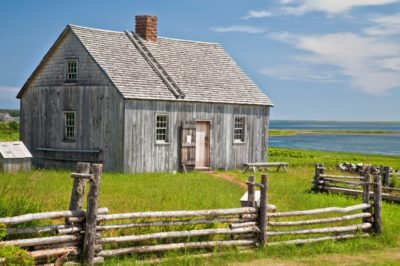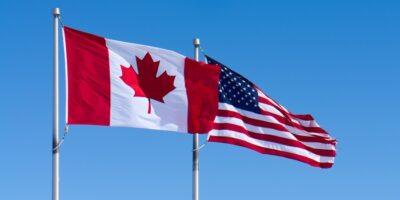The United States and Canada are both vast nations with diverse geography, terrain and weather. Both countries offer many different opportunities for those looking for an off-the-grid homestead. Which nation is preferable depends on what’s most important to the homesteader. However, there are several factors that should be important to all who want to live off the grid.
Privacy
One important aspect of living off the grid to many homesteaders is privacy. An indication of how easy or difficult it is to find a location with privacy is to look at population density. For the United States, the average number of persons per square mile is 84. For Canada, it is 9. Both of these numbers can be misleading. In the U.S., the actual population density varies greatly by state. For example, Alaska has a population density of 1.3, Wyoming has one of 6, while New Jersey has over 1,200 people per square mile. In Canada, while the overall population density is much less, keep in mind that vast tracts of the northern part of the country have very few people.
So if privacy and space is important, both the U.S. and Canada have huge swaths of land with little population. However, most of this land is in colder climates.
Food Self-Sufficiency
Many homesteaders grow enough fruits and vegetables to supplement their diet and to feed the animals that provide meat. To do this successfully, nearby surface water and/or plentiful rainfall is necessary. (A well is acceptable for an off-the-the grid homestead with a robust alternative source of energy.)
New “Sun Magic” Solar Oven Is So Fast It’s Been Dubbed “Mother Nature’s Microwave”
In the United States, the extreme northwest, Hawaii, and the southeast all get plentiful rainfall.
 In Canada, the southwest and southeast get plentiful rainfall.
In Canada, the southwest and southeast get plentiful rainfall.
In addition to water, another consideration is weather. In the U.S., there are some areas where homesteaders can have a thriving garden all year, and many areas where robust fall and spring gardens complement the summer garden.
In Canada, the growing season is limited to a few months in the summer, and frosts are possible even during warmer months. Fortunately, there are many plant varieties that have been adapted from other cold countries (like Russia), as well as those developed for cool winters. For example, many of the purple-colored tomatoes have been successfully grown in cooler European summers, and would be a good choice for Canadian summers.
Corn is another crop that has been adapted to Canadian weather. Although it originated in the hot Mexican climate, Native Americans gradually cultivated types that did better in cooler areas. By the time the Europeans arrived in North America, Native Americans were successfully growing it in what is now known as New York. Today, there are cultivars that can withstand cold nights and ripen before it gets too cool in the fall.
Security
Even though there are many laws regulating firearms in the U.S., firearms face few regulations in most rural areas that off-the-gridders would choose to live.
Everything You Need To Know To Become A Self-Sufficient Homeowner
In Canada, firearms are heavily restricted, but still generally legal to bear.
Residency
Many Americans can live in Canada as permanent residents, but they generally have to have a skill or specific type of business to qualify. However, if you want to be left alone and live on your homestead off the grid, you may not qualify. More information is available from the Canadian embassy.
Conclusion
Finding the perfect location for an off-the-grid homestead is hard work, and ultimately depends on the preferences of the person looking for one. The U.S. is probably the best choice for Americans for several reasons. First, there is no concern about meeting residency requirements. Second, you can move to a climate that suits your preferences. Those who want year-round gardens can find the right climate in the southern or southwestern part of the country. Those seeking more space and privacy, and who don’t mind winters, can head to Alaska or Montana or other states along the border with Canada.
However, if you can meet Canadian residency requirements, and don’t mind long winters, there are vast tracts of forested land in the interior of Canada, perfectly suited to those who want privacy and space.
The good news is that somewhere in North America there’s a perfect location for you to live the off-the-grid lifestyle you choose to live.
Which country do you think is best for off-gridders? Share your opinion in the section below:
 Off The Grid News Better Ideas For Off The Grid Living
Off The Grid News Better Ideas For Off The Grid Living





